African Jesuit AIDS Network (AJAN) in collaboration with Comboni Alliance for Social Entrepreneurship (CASE) and AgroMwinda a social, educational and economic platform that supports small farmers and micro entrepreneurs with innovative solutions in the Democratic Republic of Congo undertook a 3-day training program for the youth from 20th to 22nd June 2024 at Boboto College in Kinshasa, Democratic Republic of the Congo (DRC).
The Social Entrepreneurship training for Job-Creation for a Self-Reliant Church that was led by CASE, attended by 41 participants made up of the youths and accompanying Parish Priests from 14 parishes across 7 dioceses that include; Bx Bakanja, St Esprit, Christ Roi Mangobo located in Kisangani – Province de la Tshopo, Dame Dame de la Misericorde de Cimpunda Bukavu – Province of South Kivu, St. Pierre Claver-Kinshasa Province, St Sauver, Popokabaka – Province of Kwango, Sacre Cœur, Kikwit – Province of Kwilu, saw the youths introduced to the concept of social entrepreneurship in the structures of the Parish that is aimed at having the participants establish innovations that are to respond to African social challenges through a new model of sustainability for the church and Africa which intertwines together faith, mindset of the young people and sustainable innovations.
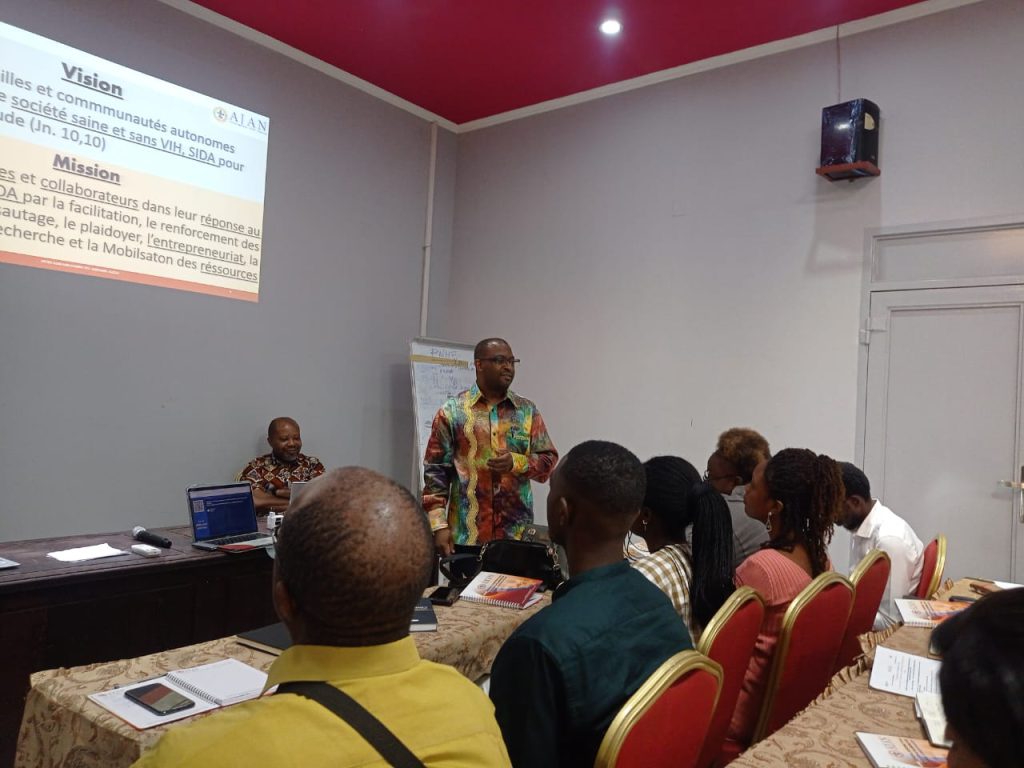
The training was kicked off with Fr. Ismael Matambura SJ., AJAN Director welcoming the participants and outlining the objective of the training which was to unlock the potential of youth to develop their human innovative potential that tap into the opportunities that exist in their environment which are to bring solutions to the problem that the people in their communities are facing. Among these problems is the fight against HIV which is at the heart of the work of AJAN, fighting stigmatization through empowering communities with knowledge and economic manpower, accompanying young people towards a hope-filled future through the AJAN HIV and AIDS Prevention Program (AHAPPY). In his speech he reiterated, “Even as we fight HIV we still have people who are dying of Tuberculosis (TB), Human papillomavirus (HPV), Cholera, Hepatitis C and other tropical diseases. For us to succeed in this fight we need innovative approaches and sustainable solutions that prioritize accessibility, affordability, and scalability. Social entrepreneurship can play a pivotal role in bridging gaps in healthcare delivery, developing new technologies, and empowering communities through education and advocacy.”
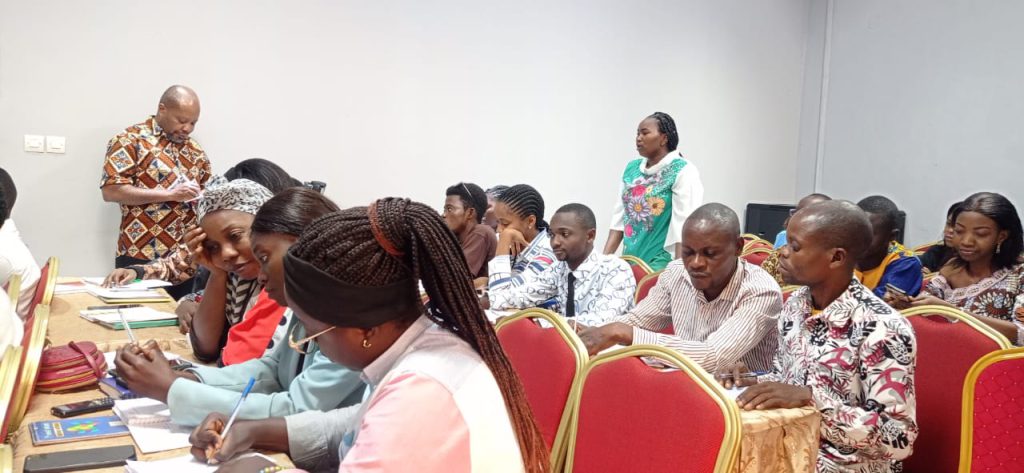
The first session was led by Bro. Jonas Dzinekou Yawovi, current director of the Institute for Social Transformation of the Tangaza University in Nairobi, Kenya, participants were made to understand what social entrepreneurship is all about by making them understand that promotion of new social enterprises and innovations are to respond to local social issues and challenges, through initiatives that bear economic, social and environmental benefits. By focusing in providing the participants with the needed knowledge to develop innovative and sustainable solutions to transform their communities, inspired by the Gospel and the values of the Kingdom of God. As in the Comboni tradition, the participants will be expected to reach out to their fellow youths back in their parishes who are the main agents of their own transformation, and in all this process CASE through the coordination of AJAN will be playing the role of building their capacity and empowering the communities for social transformation.
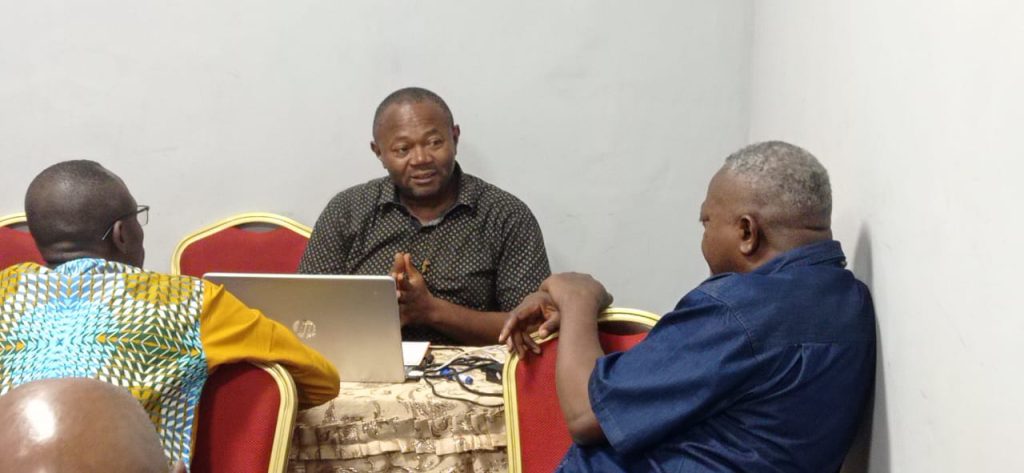
Towards the end of Day 1, participants had been introduced to the 3-Zero club an inspiring initiative aligned with the visionary ideals of Nobel Peace Laureate Professor Muhammad Yunus. It aims to realize a world of three zeros: zero net carbon emissions, zero wealth concentration to end poverty, and zero unemployment through the empowerment of entrepreneurship. This ambitious program is primarily focused on equipping the youths in DRC and Africa with skills in social entrepreneurship, innovation, and environmental stewardship.
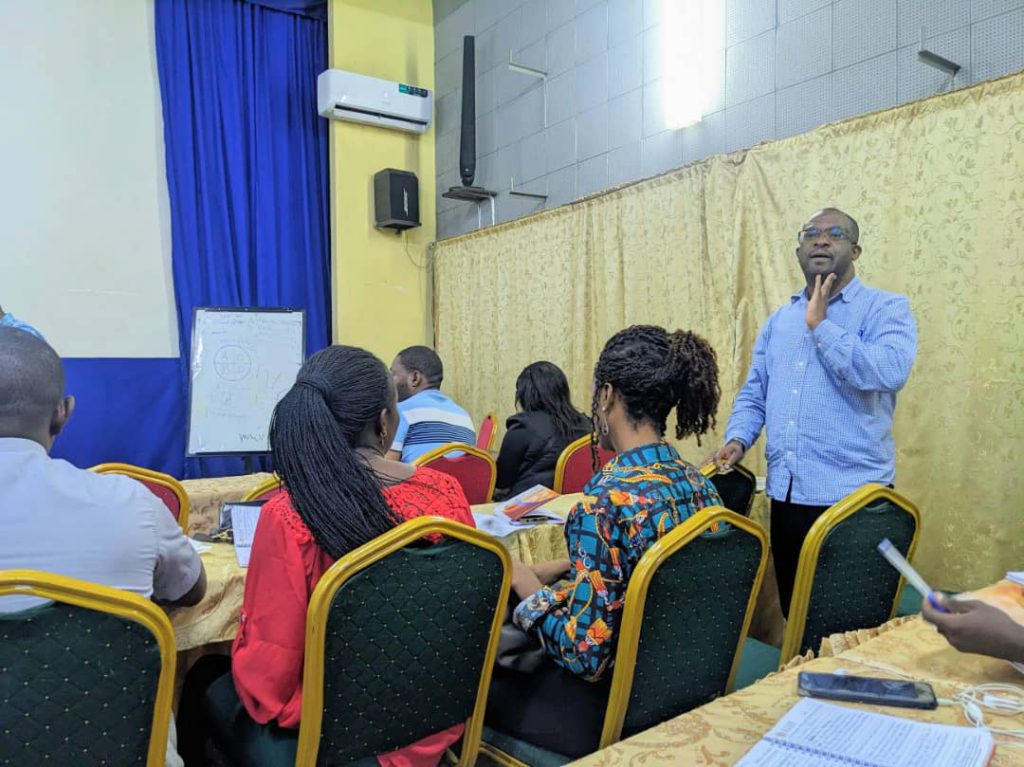
On Day 2 participants were immersed deep into what the 3-Zero club, in this sense, the metric of the Three Zeros, applied by the Yunus Foundation, serves to make all the Zeros dialogue, through projects and activities in each work area, in order to concretely pursue the vision of Professor Yunus. The participants were challenged to join and set up the 3-Zero clubs back in their parishes upon the conclusion of this training so as to make young people familiar with the goal of a “three zero world” and with ways to achieve this goal through their creative initiatives. According to Bro. Jonas Yawovi, “Each club empowers itself by connecting with other such Clubs, having a larger range of common features. The clubs become exponentially powerful as they link themselves up with each other. This networking expedites, in a systematic way, the process of reaching the three zero goal faster.”
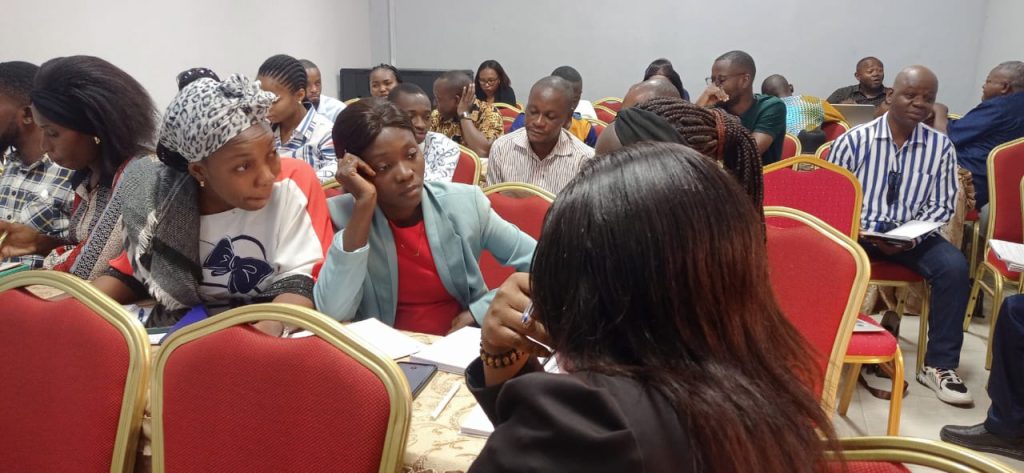
To elaborate more on how the 3 Zero Club operates Mr. Symphorien Pyana the Chief Executive Officer (CEO), AgroMwinda, shared with the participants how AgroMwinda is working together with the youths and farmers in DRC to address unemployment, end poverty through personalized support and adapted training, they youths were encouraged to develop their businesses and formalize themselves. Mr. Symphorien stressed the importance of the participants to strengthen their skills in management, development of simplified business plans, networking, and many other key aspects of running a business and coming up with innovative solutions.
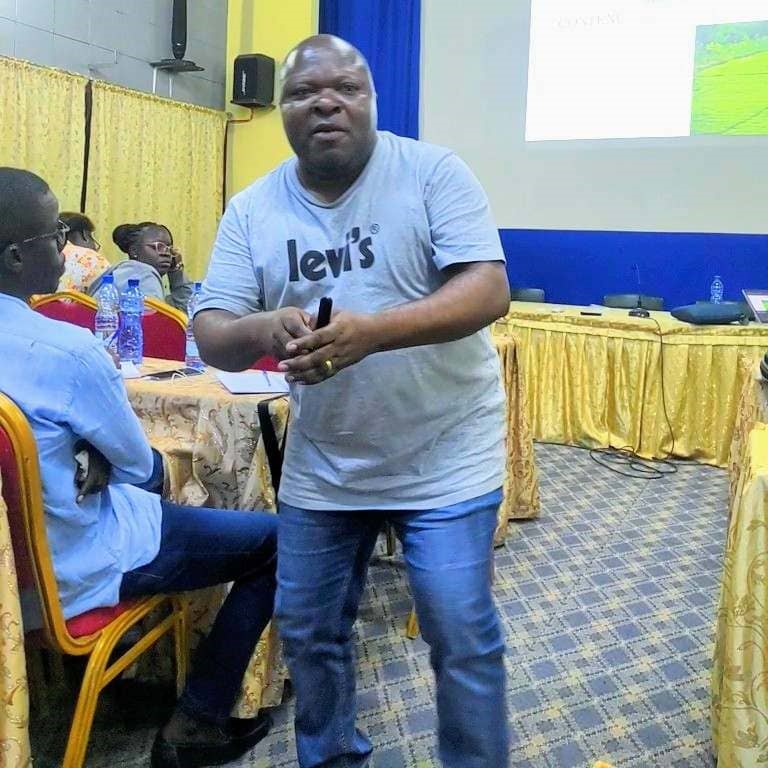
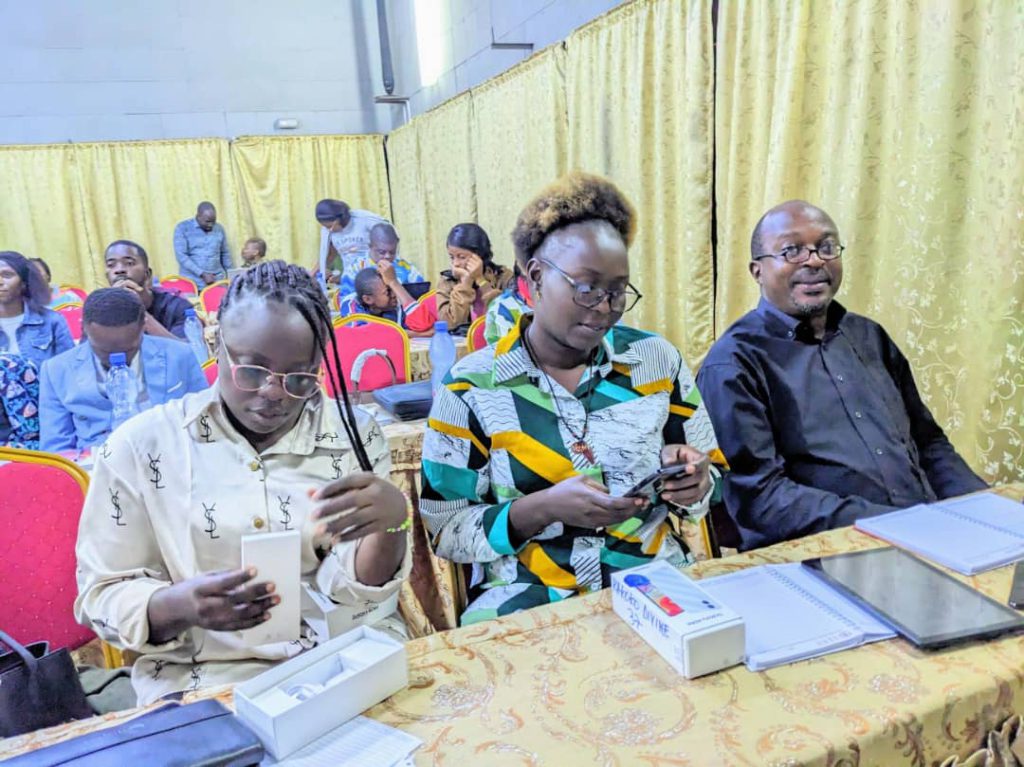


On the final day of the training, 41 participants, along with two facilitators from CASE, two staff members, and the director of AJAN, received Samsung smartphones provided by AgroMwinda. These smartphones are intended for participants to track their social innovation projects and serve as resource tools for developing business plans until the projects come to fruition. The participants were then divided into groups based on their parishes to discuss and create action plans, identifying existing challenges and opportunities within their communities. The suggested action plans are to adhere to social entrepreneurship models introduced during the training, including the Lean Canvas model.
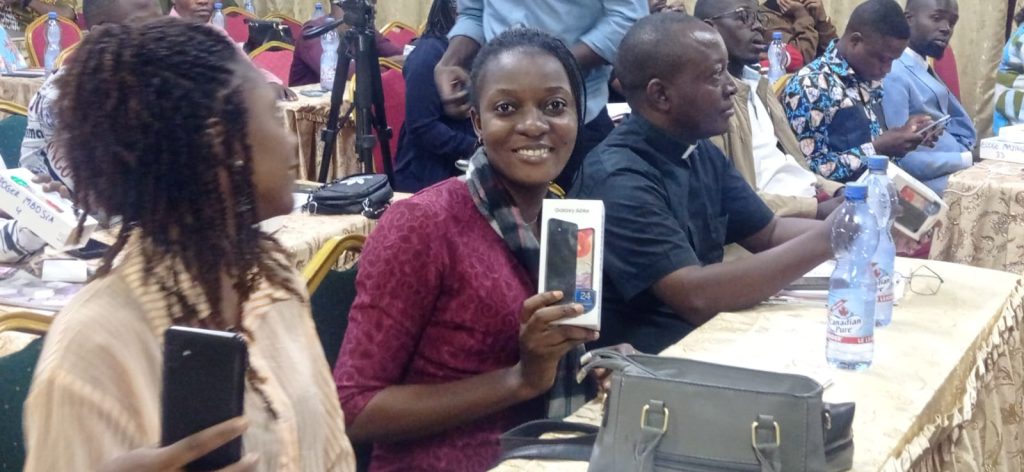
Some of the participants were able to share with us positive feedback.
According to Mr. Olivier Nzundu from Sacre Coeur Kikwit
“The training went well, and the explanation is very clear, it was well organized, I like it, and I have the impression that we will be able to create and achieve our objective, example is the pure water plant which is already in progress back in my parish, I believe water is the fundamental human right, less people in DRC have access to drinking water in rural areas, the water shortage is enormous and the population consumes water from rivers. I am going to involve young people in collaborating on how we can improve the future to ensure that my community has access to clean water.”
According to Ms. BUNKATU lisette
“The training opened a spirit of creativity in me and allowed me to see to what extent it is possible to participate in the sustainable development of my diocese. Based on how to identify a problem in the environment we live in, and how to solve this social problem that bothers the population so much. I have become a social entrepreneur with the strength to innovate and to be able to create employment, finally so that young people can get massively involved by forming a group of 3zeros clubs to facilitate exchange and then the advancement of work, thanks to this formation. Thanks to this training I was able to get out of my comfort zone, face my fears and put to use all my possible energy to achieve a business, thus I was able to develop a culture of innovation.”
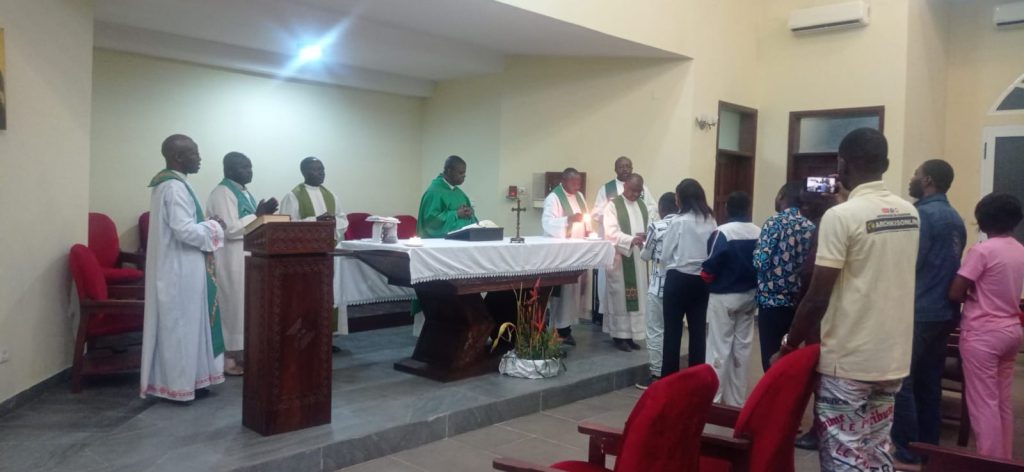
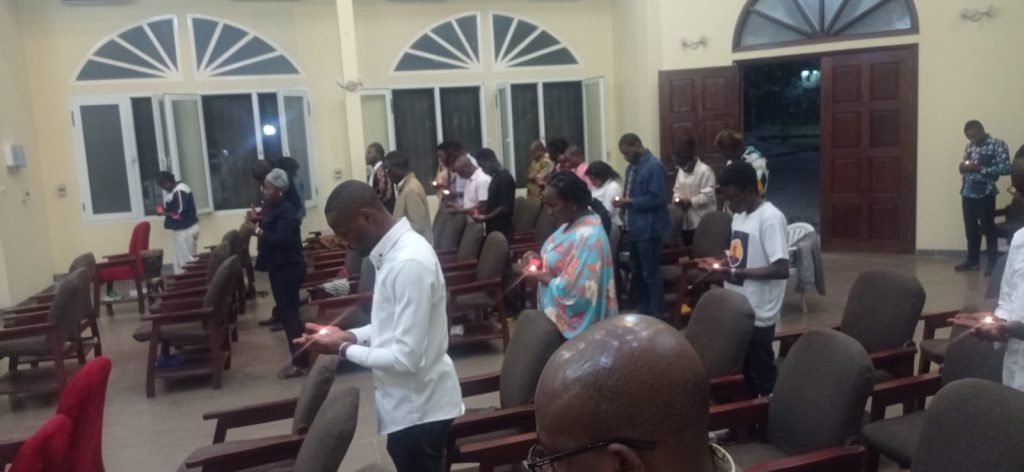
At the pinnacle of the training, a commissioning mass was held for the 41 participants. The highlight of this ceremony was the symbolic lighting of candles, representing the participants’ readiness and commitment to their newfound roles and journey towards social transformation of their communities.
The found partnership between AJAN, CASE and AgroMwinda provides an opportunity for Youths in DRC to be social Innovators. By offering comprehensive support, adapted training and personalized support, this initiative helps to strengthen the capacities of youths and promote their professional development. Thanks to the involvement of CASE and AgroMwinda, the youths have the opportunity to flourish in their activity and actively contribute to the economic growth of the country. It is therefore encouraging to see initiatives of this type developing and offering new perspectives to young innovators and entrepreneurs in the DRC.
AJAN and its collaborators believe that there is a wide array of creative possibilities to harness social entrepreneurship to further the social mission of the Church and social transformation, giving hope and enhancing the generativity of young people and local communities.
By, Dennis Owuoche,
AJAN Communications Officer.


Comments are closed.